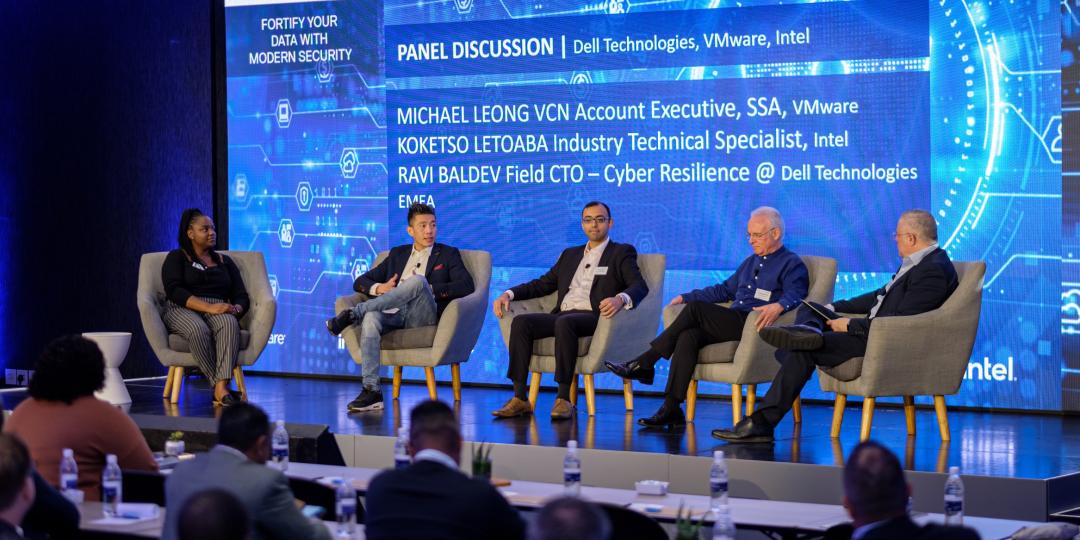Cyber threats are costing businesses and economies billions of rands. Dell Technologies South Africa hosted a TechByte webinar on 12 July 2022 to engage with organisations on how to protect their data and systems, enhance cyber resiliency and overcome security complexity.
Dell Technologies’ partners, VMware and Intel, joined the discussion to highlight strategic ways to step up innovation in business, a critical component in achieving optimal levels of cyber resiliency. The forum was also joined by Arthur Goldstuck, Ffounder and CEO of World Wide Worx, as well as Dr Haitham Rashwan, regional manager of Cyber Security Services for Dell Technologies.
“The threat vectors are definitely increasing at an alarming level,” said Dr Rashwan. According to Cybersecurity Ventures, In 2021, a cyber or ransomware attack occurred every 11 seconds and the global impact of cybercrime was $6 trillion. Now more than 150 million phishing emails are sent worldwide every day, and all it takes to cause an organisation major damage is for one person to click on the link.
Doug Woolley, Managing Director of Dell Technologies South Africa, emphasised how the growing work from home trend has opened vulnerabilities in companies and networks. “Organisations need to think one step ahead and set up systems, procedures, and skillsets to deal with the multitude of attacks coming through. The way we protect data in 2022 is very different to how it was done five years ago,” he said.
This is compounded by the fact that organisations are managing 10 times more data than they were five years ago. In addition, more than 60% of organisations have experienced a data loss due to an exploited vulnerability, while 65% of IT decision makers are not confident that their data and systems can be fully recovered following such an event.
The State of Cybersecurity in South Africa, a study conducted by World Wide Worx with the support of Dell Technologies South Africa and Intel, showed that 99% of corporates are aware that disaster management is essential. However, only 40% of businesses use multiple solutions to protect, back up and replicate their data in the event of disaster.
“Compromises and vulnerabilities are revealed through the weakest link in the IT system, which is often an organisation’s own employees,” Goldstuck said. “This may allow ransomware programs and phishing attempts to enter the system. More than half of businesses report that ransomware and phishing attempts have increased in the past year.”
The study also indicated that a more secure cybersecurity environment enables employees to feel more productive and, therefore, more innovative. “Once they have a secure culture, employees can focus on what they do best. Implementing effective cybersecurity measures is not an investment for its own sake, there are massive business benefits,” Goldstuck said.
Michael Leong, Virtual Cloud Network Account Executive for VMware, and Koketso Letoaba, Technical Specialist for Intel, both agreed that a zero-trust approach to security was key.
“The principle of zero trust is at the heart of building a security system rather than a series of point solutions. Organisations should assume they’ve been breached and that there is an absolute risk of compromise. VMware has a unique ability to implement zero trust security at access points as well in the data centre,” Leong said.
Letoaba said, “We are seeing security perimeters erode as cyberthreats evolve and become more complex. Balancing user experience and IT security priorities is difficult, especially as home and business PC usage converges.”
Commenting on protecting business in the digital era, Woolley said: “Businesses need to protect data and apps across the organisation, monitor networks for threats, increase automation and have a working response plan in place which is tested proactively. It is also critical to take a holistic view of people, processes and technology rather than technology alone.”
















